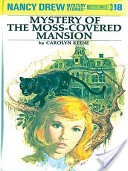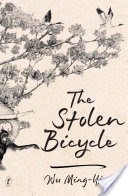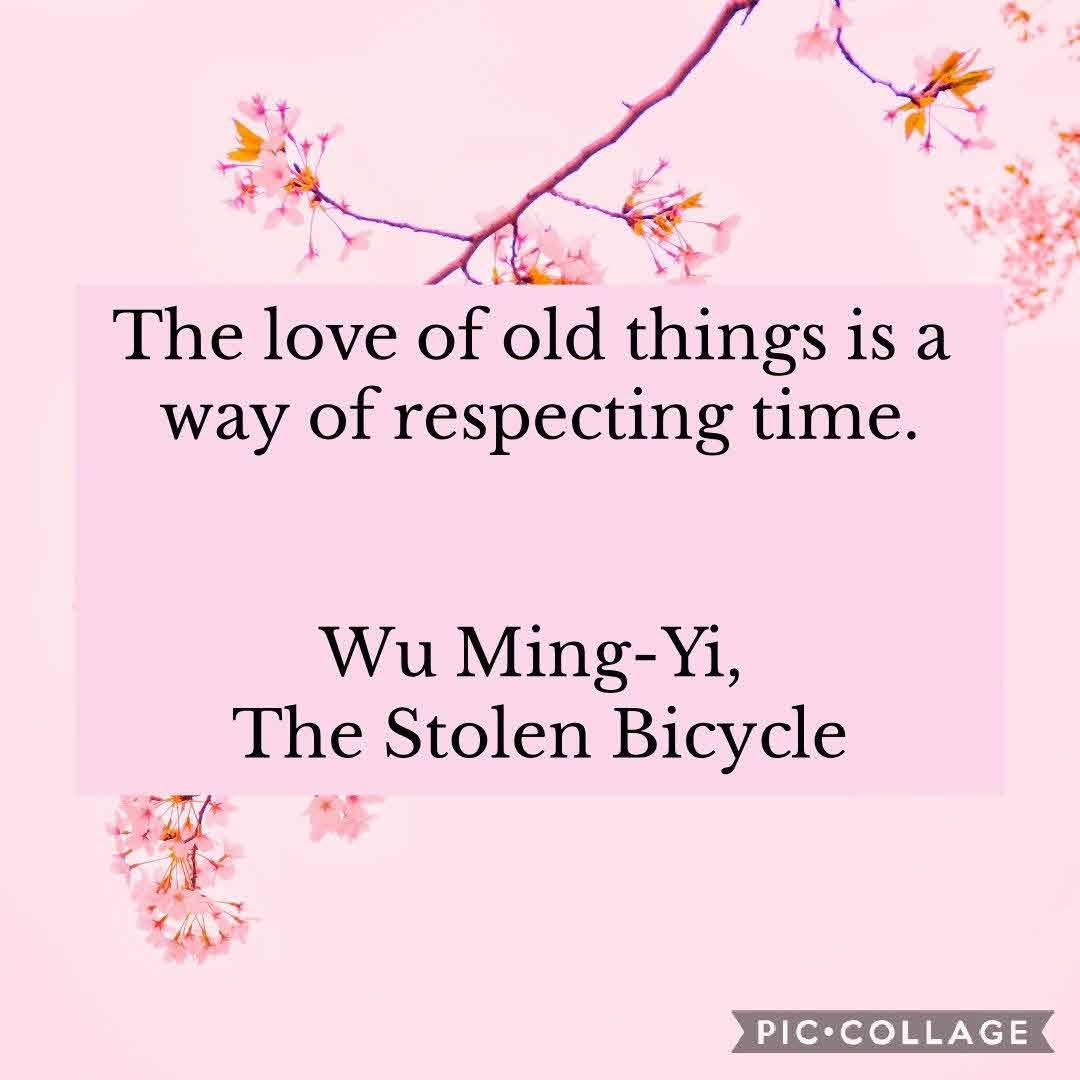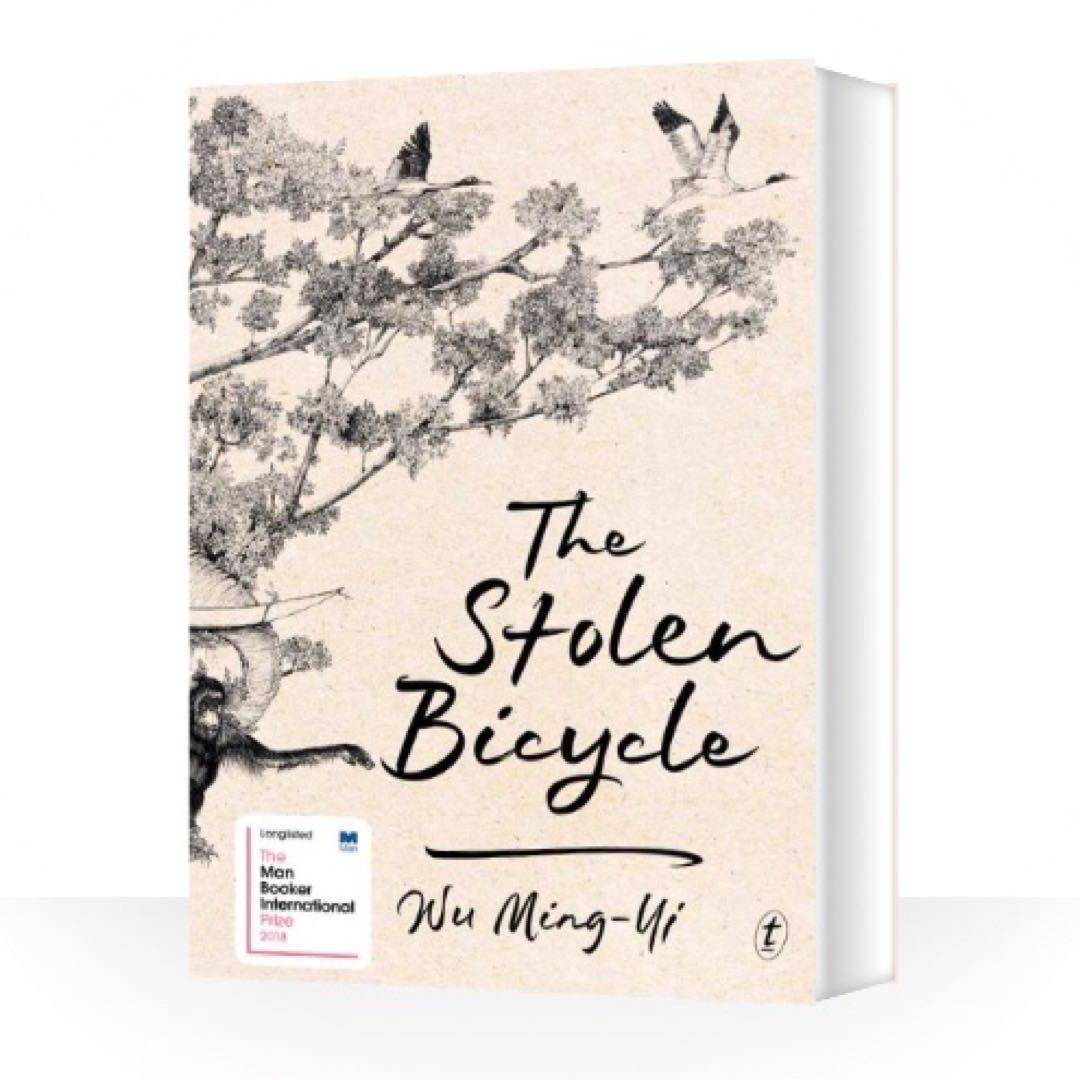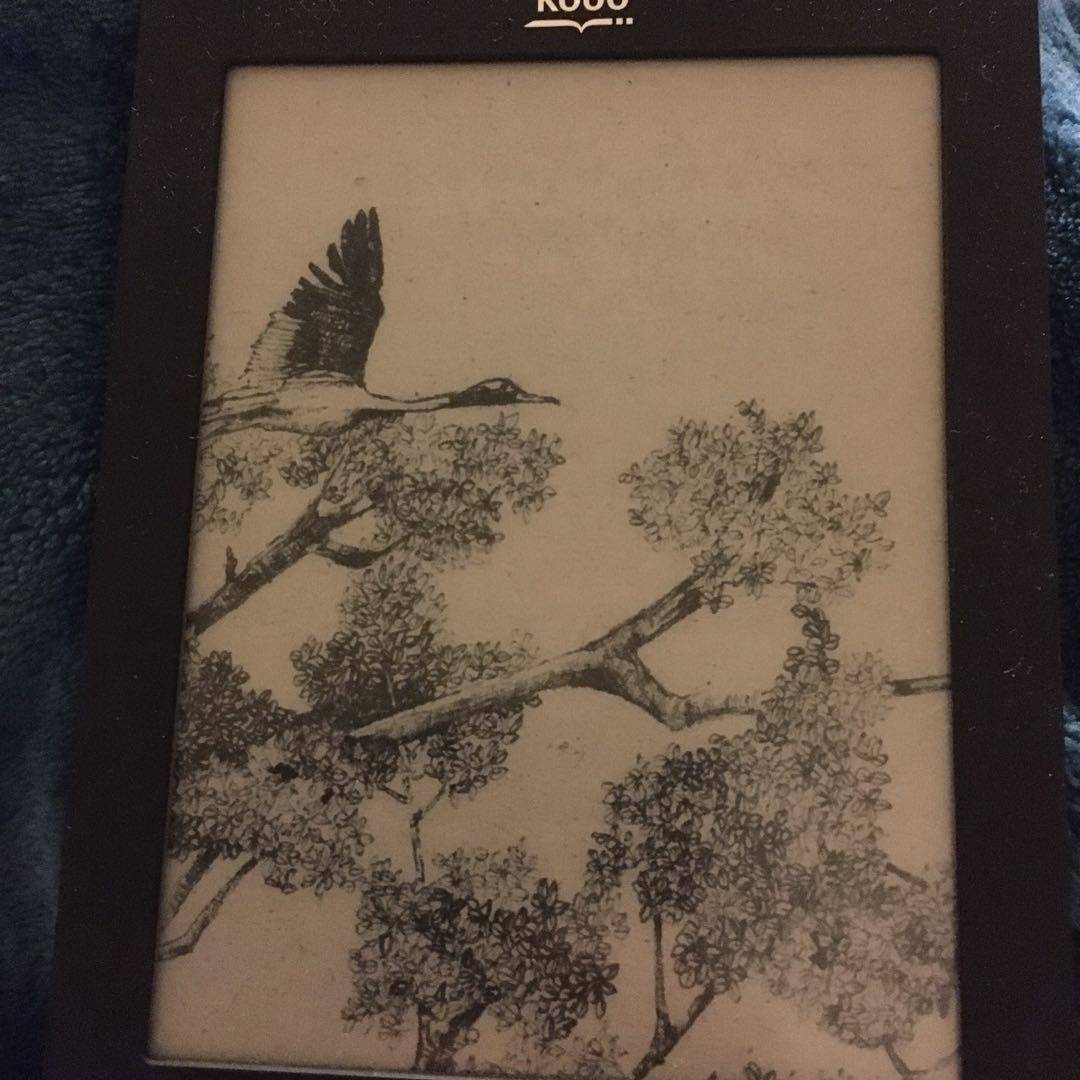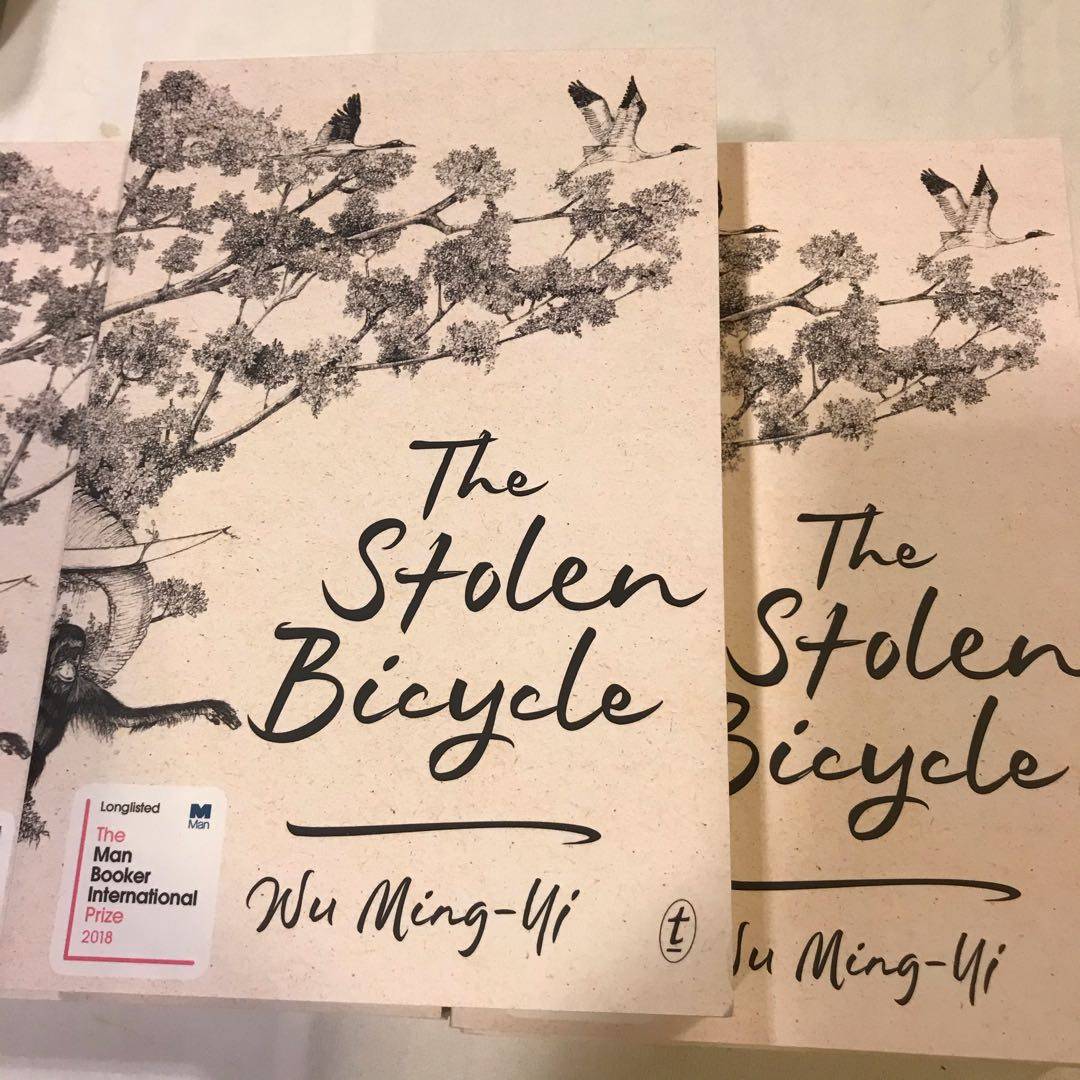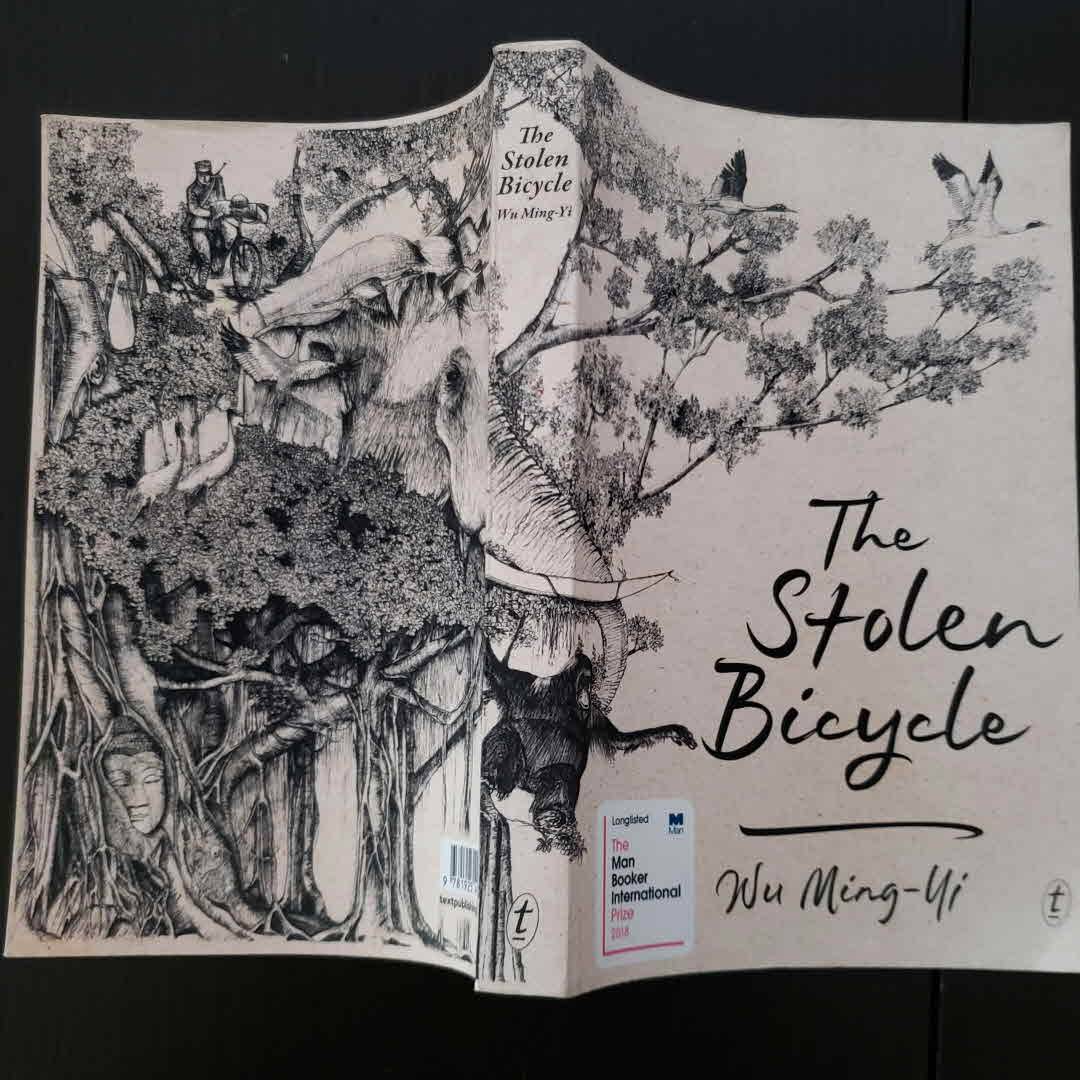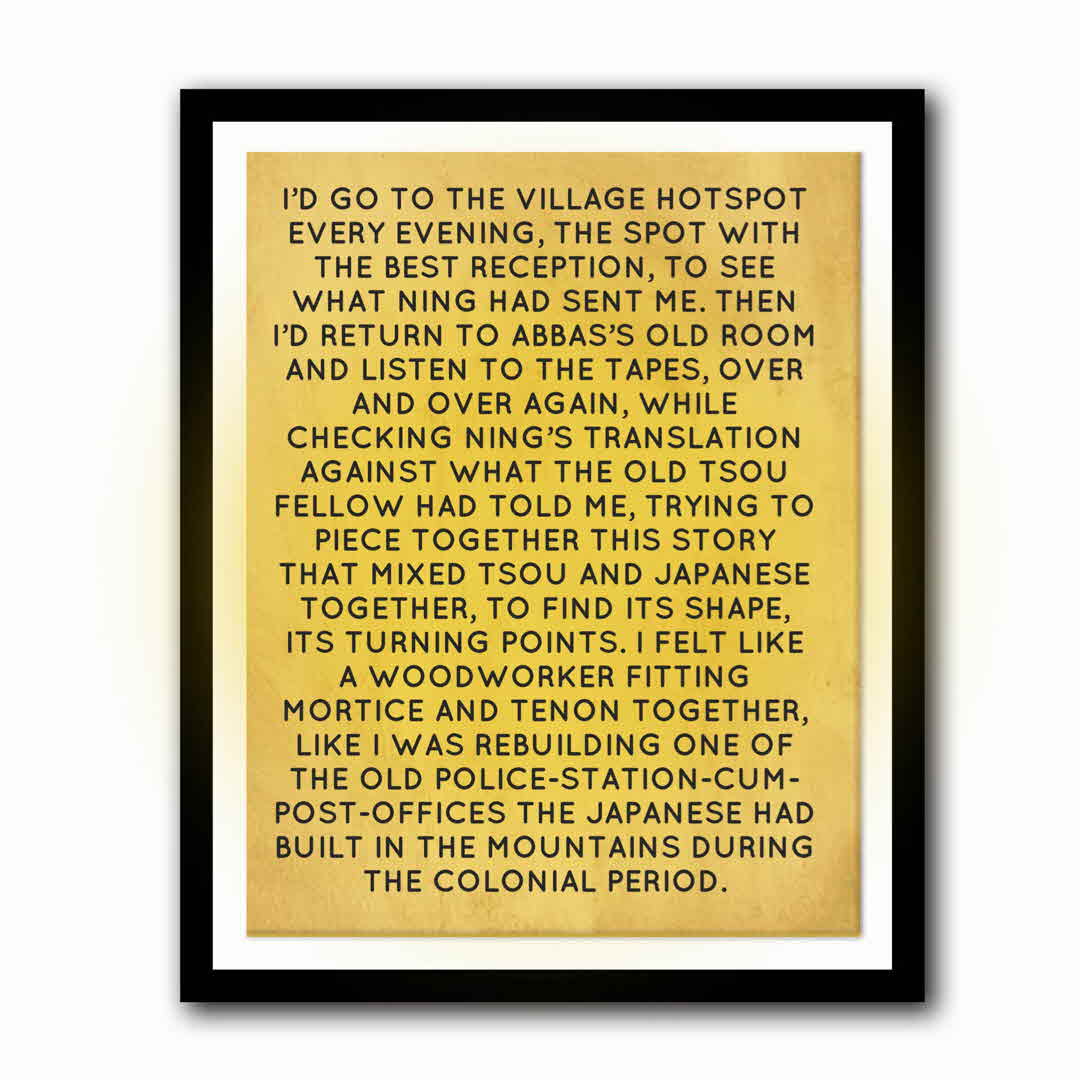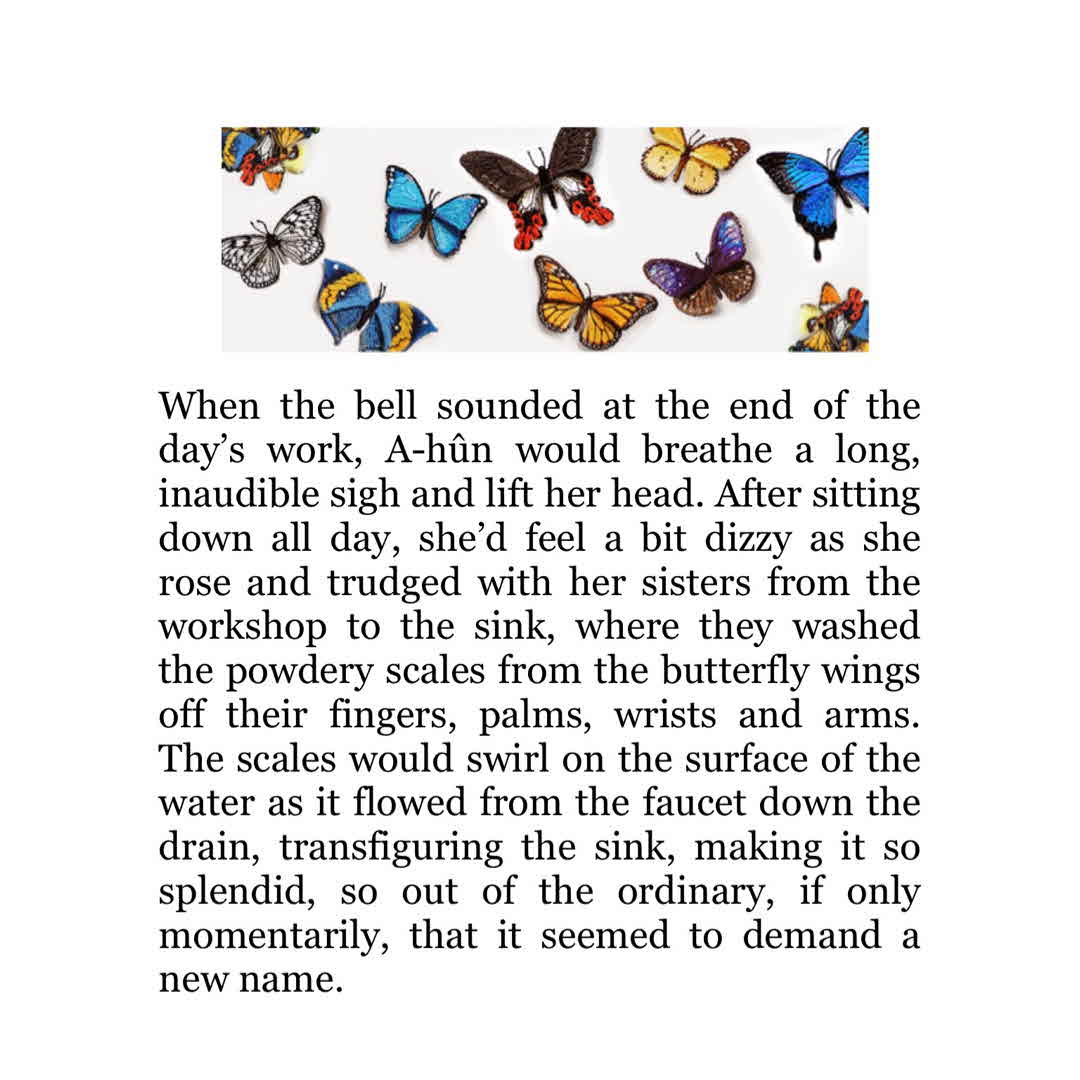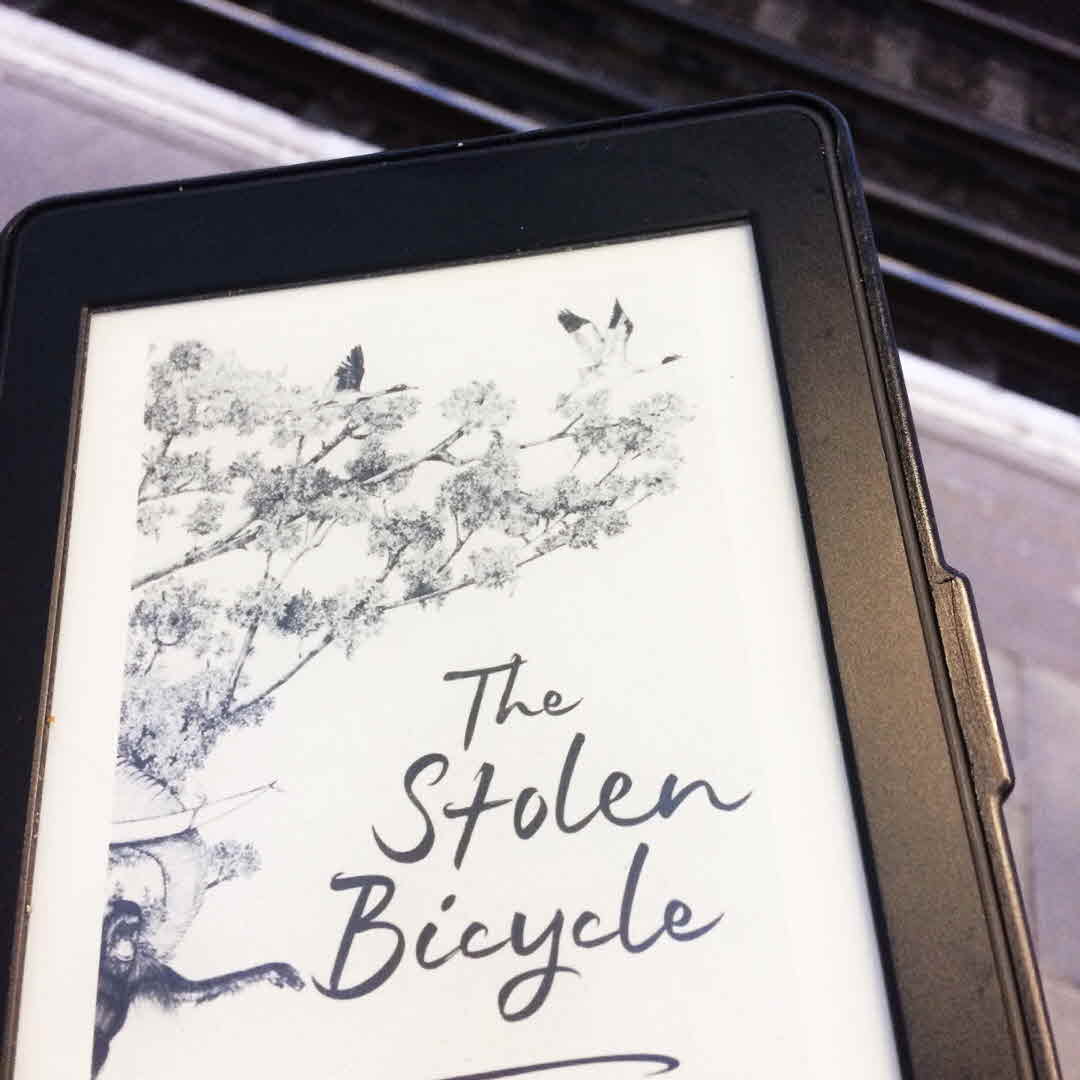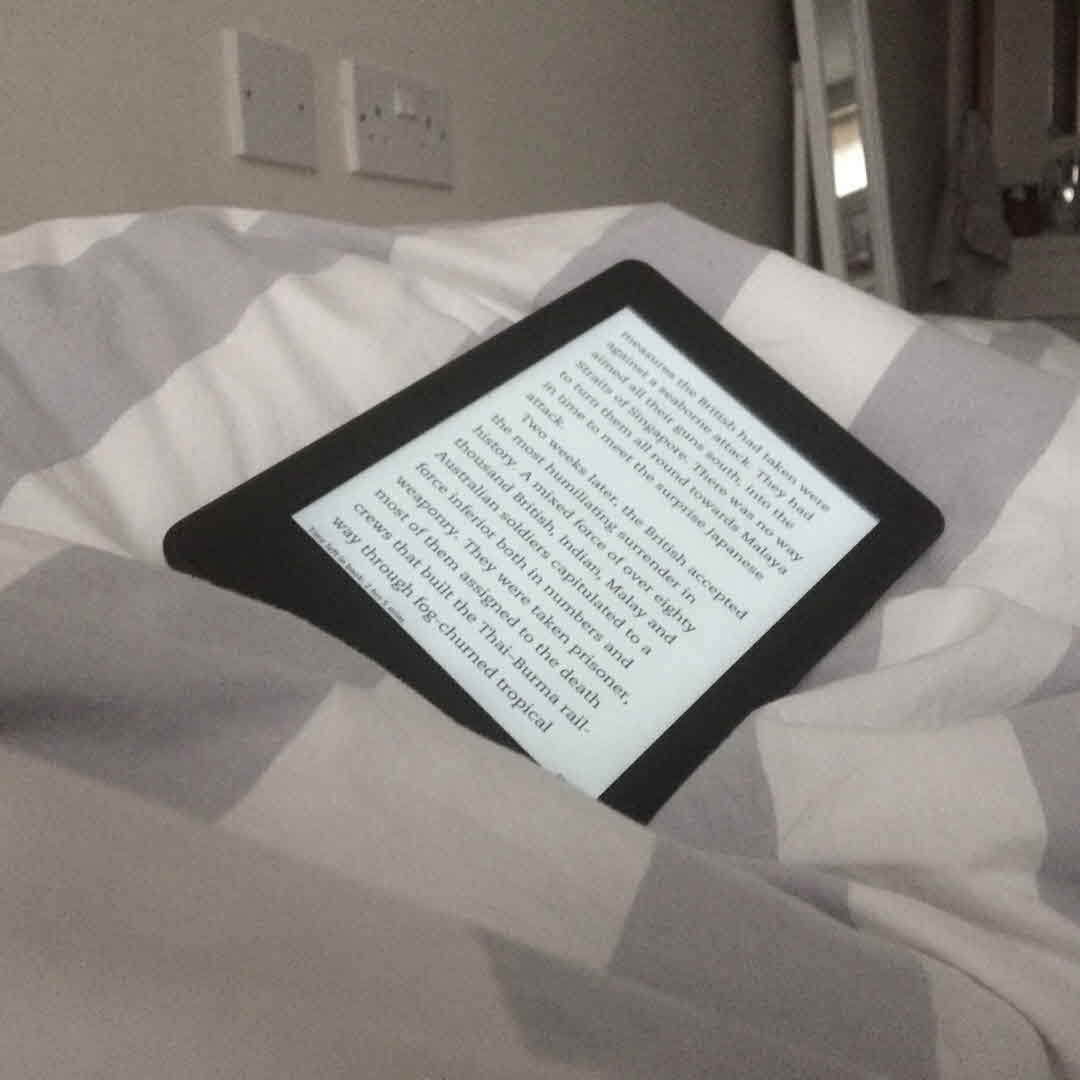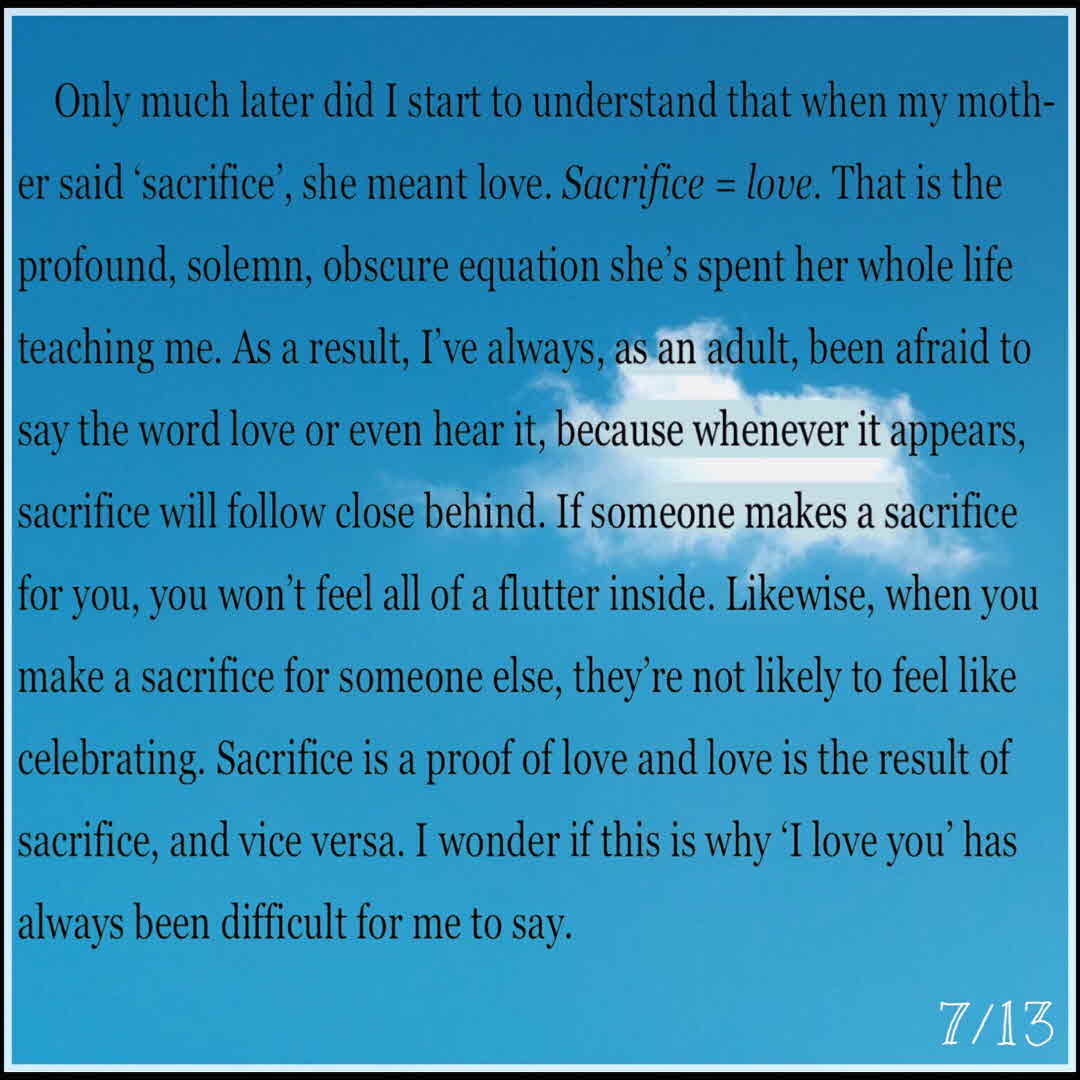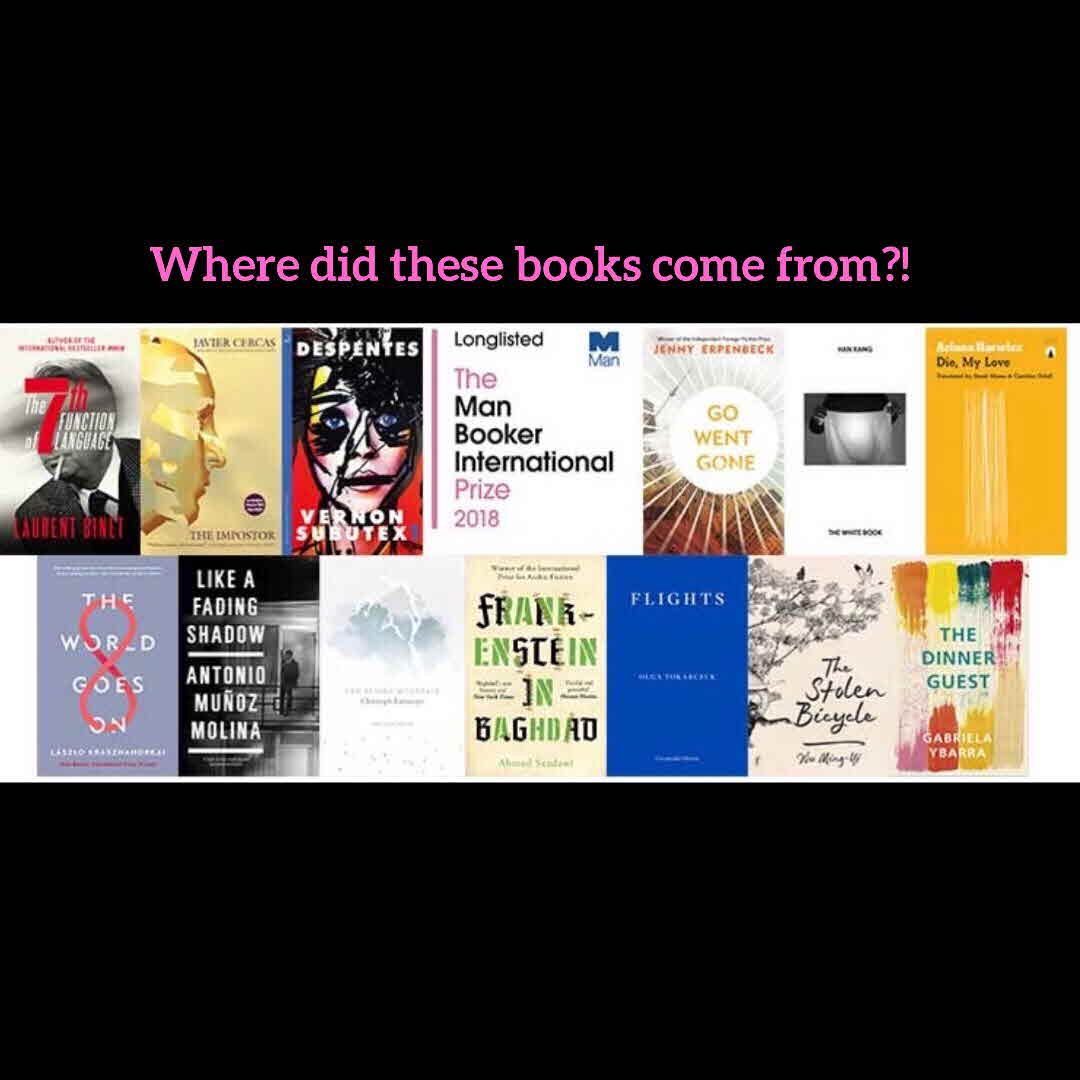The Stolen Bicycle | Wu Ming-Yi
Six-time Winner of the China Times Open Book Award and �Author of the Year�, Eslite Bookstore A writer embarks on an epic quest in search of his missing father�s stolen bicycle and soon finds himself caught up in the strangely intertwined stories of Lin Wang, the oldest elephant who ever lived, the soldiers who fought in the jungles of South-East Asia during the Second World War and the secret worlds of the butterfly handicraft makers and antique bicycle fanatics of Taiwan. The Stolen Bicycle is both a majestic historical novel and a profound, startlingly intimate meditation on memory, family and home. Award-winning novelist Wu Ming-Yi is also an artist, designer, photographer, literary professor, butterfly scholar, environmental activist, traveller and blogger, and is widely considered the leading writer of his generation in his native Taiwan. A long-time resident of Taipei, Darryl Sterk has interests in Taiwan�s local literature and indigenous cultures. He translated the first of Wu Ming-Yi�s novels to be published in English, The Man with the Compound Eyes. PRAISE FOR WU MING-YI AND THE STOLEN BICYCLE �A work of astonishing energy, in which Wu beautifully touches on loss, life and death, fate and destiny, establishing emotional connections between memory and objects, and between the natural world and war... a novel that provides comfort and reconciliation from a wounded past.� Thinking Taiwan �The novel, inspired by his love for bicycles and Taiwanese history, brings readers back to a simpler time when life moved more slowly and people spent more time face-to-face with friends and neighbors. Riding a bike allowed people to appreciate and digest the details of the world around them.� Taipei Times �A profoundly moving novel, such is the power of words and depth of feeling by Taiwanese author Wu Ming-Yi...He turns events into linguistic gold with his poetic, dreamlike language.� Good Reading �A visionary ride through flame-scorched lands and machine-clutching trees and metamorphoses into metal and earth..."World is crazier and more of it than we think,/Incorrigibly plural", Louis MacNeice wrote...Multiply that by 10 or so and you get some sense of Wu�s astonishing, often-affecting kaleidoscope.� NZ Listener �Unusual insights and vividly observed detail abound in this witty and sensitive story.� Toowoomba Chronicle PRAISE FOR THE MAN WITH THE COMPOUND EYES �Brilliant. . . . A haunting and evocative tale, beautifully told.� Hugh Howey, author of Wool �We haven�t read anything like this novel. Ever. South America gave us magical realism�what is Taiwan giving us? A new way of telling our new reality, beautiful, entertaining, frightening, preposterous, true. . . . Wu Ming-Yi treats human vulnerability and the world�s vulnerability with fearless tenderness.� Ursula K. Le Guin �A striking book. . . . It is science fiction . . . in the way that the best Margaret Atwood books are science fiction. . . . I couldn�t put it down.� Jason Sheehan, NPR �Lyrical, haunting. . . . A heady mix of science fiction, fantasy, environmental fable and magical realism, the author had to create a genre entirely new for this singular, captivating book.� Pittsburgh Post-Gazette �Astonishing. . . . A wonderful novel.� The Independent (London) �An earnest, politically conscious novel, anchored in ecological concerns and Taiwanese identity. . . . Beyond the book�s ecological and scientific attributes, you can see a deft novelist�s hand at work.� Tash Aw, The Guardian (London) �Imaginative and moving.� Financial Times �[Ming-Yi is] reminiscent of Haruki Murakami, twisting the dreamlike into the curiously credible.� Times Literary Supplement (London) �Rich, dense and dripping with life. The book sings in the key of fable, but with the timbre of reality.� Charles Yu, author of How to Live Safely in a Fictional Universe �An entrancing, multi-faceted elegy. . . . [Ming-Yi writes with] a poet�s approach. . . . Full of painful, wonderful beauty.� The Rumpus �Beautifully written and beautifully translated. . . . [Ming-Yi] guides us to see the entirety of experience as bumping flotsam in an unending ocean of life colliding and making a mess of things or making something new. . . . Lyric, simple, soft, the story crests and recedes and comes back again.� The Bloomington Sun-Current �[Ming-Yi�s] rollercoaster of a story is about wilderness, wildness, wonderment, love. . . . [The Man with the Compound Eyes includes] perhaps the best writing to ever come out of a Taiwan novel.� Taipei Times �A gift. . . . Ming-Yi is a naturalist as well as a storyteller, and it is perhaps his greatest achievement that this novel creates a sense of solidarity not only between his human characters, but also between [the] humans and the animals and plants he describes with such fidelity.� FullStop �Offering a heady dose of realism, surrealism, and magic realism, with several shots of allegory, award-winning Chinese author Wu [Ming-Yi] offers a work for �literary fiction� readers, but not in the snobbish sense. It�s really for any curious, intelligent reader.� STARRED review, Library Journal








